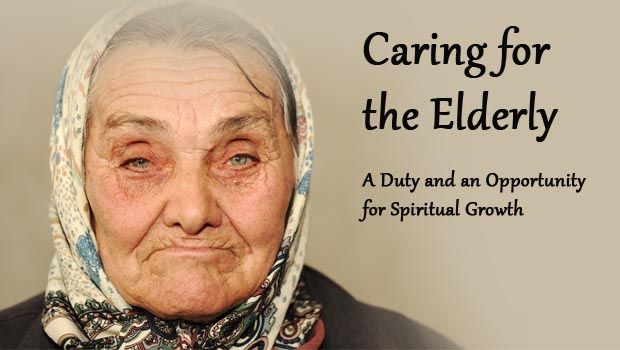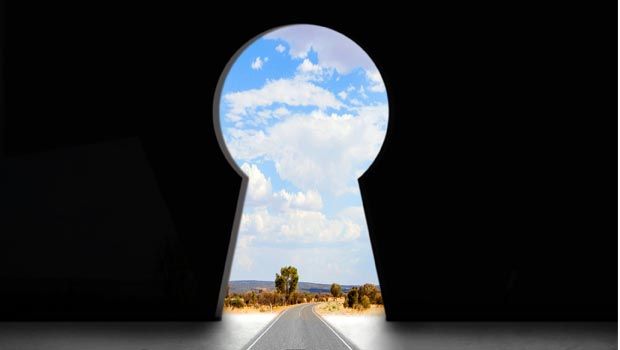Grandparents are undoubtedly the best! Their smiles, tender words of love, storytelling sessions, the joy they get in feeding and playing with their grandchildren, their wise advice, and the list goes on and on and that’s why I miss them so much. And that’s why I regret not being able to do what I could and should have done when I had the opportunity. If only I could go back in time. But that is not possible. We can hold on to the sweet memories of parents, grandparents, and other elders who are close to us, remembering so well what they were like in the prime of their lives. It might be painful to watch them age, becoming frail and dependent on others. But this is the time and opportunity to grasp what Allah (swt) has enjoined upon us.
Certainly the manner in which one treats family members and relatives, including of course the elderly among them, and particularly the parents, is foundational to maintaining good ties of kinship. And beyond even that, the mother is designated as deserving special treatment.
The Qur’an states: “Your Lord has commanded that you worship none but Him, and that you be kind to your parents. If one or both of them reach old age with you, do not say to them a word of disrespect, or scold them, but say a generous word to them. And act humbly to them in mercy, and say, ‘My Lord, have mercy on them, as they cared for me when I was small’” (17: 23-24).
To fully understand the above ayah, let us examine some statistics about the elderly population, the health conditions they are afflicted with, and the care they are provided. The elderly population, persons 65 years and older, represent 12.9 percent of the U.S population, about one in every eight Americans. The number of people worldwide older than 65 will double to 14 percent from 7 percent by 2030. The elderly are subject to varying chronic conditions that accompany aging and signal that the health of the body and/or mind is declining. Whether dementia, hearing impairment, difficulty in walking, or any other condition that erodes an individual’s ability to function adequately or live independently, it is a fact that about 14 percent of this population will become vulnerable enough to require special care, assistance, and support from others. According to the U.S. Bureau of the Census, slightly over 5 percent of the 65 years and older population occupy nursing homes, congregate care, assisted living, and board-and-care homes, and about 4.2 percent are in nursing homes at any given time. The rate of nursing home use increases with age from 1.4 percent of the young-old to 24.5 percent of the oldest-old. Almost 50 percent of those 95 and older live in nursing homes.
Unfortunately, many elderly individuals suffer neglect and/or abuse in nursing homes, assisted living facilities, or even in their own children’s/relative’s homes. Studies indicate that female elders are abused at a higher rate than males and that the older one is, the more likely he or she will be neglected or abused. Neglect is when a caregiver fails to provide for the elderly person’s safety, nutritional requirements, healthcare, hygiene, or psychological needs such as social contact and activities. Abuse can be in the form of physical aggression (inflicting pain or injury in any way), non-consensual sexual contact of any kind, exploitation of their finances, property, or assets, or any emotional interaction that involves humiliating, intimidating, or threatening them. The elderly may be reluctant to report neglect or abuse because of fear of retaliation, or they lack the physical and/or cognitive ability to report, or because they don’t want to get the abuser (90 percent of whom are family members) in trouble.
Neglect and abuse are in stark contrast to what Allah (swt) has commanded regarding the care of elders. The Prophet (pbuh) was clear about the duty to respect and honor the elderly. Anas ibn Malik (may Allah be pleased with him) narrated that the Prophet (pbuh) said, “If a young man honors an elder on account of his age, Allah appoints someone to honor him in his old age” (At-Tirmidhi). And in another account, he said, “He is not one of us who does not show mercy to our young ones and esteem to our elderly”(At-Tirmidhi and Ahmad). And as indicated in the verses cited above, we are commanded to be kind in speech, humble in our acts, and merciful to our parents, just as they were to us when we were young. These verses remind us that in our childhood we were helpless and dependent and received unconditional love and care from our parents. Yet in another place, the Qur’an states: “And we have enjoined on man to be dutiful and kind to his parents. His mother bears him with hardship. And she brings him forth with hardship, and the bearing of him and the weaning of him is thirty months, till when he attains full strength and reaches forty years, he says ‘My Lord! Grant me the power and ability that I may be grateful for Your Favor which You have bestowed upon me and upon my parents, and that I may do righteous good deeds, such as please You, and make my offspring good. Truly, I have turned to You in repentance, and truly, I am one of the Muslims’” (46:15-16).
The reminder of the hardships endured by parents, particularly the mother, in bearing and raising children validates the obligation to care for one’s elderly parents in a kind and loving way. When a person acknowledges the efforts and sacrifices of his parents in raising him, and of the honor and respect due to the elderly in general, he acknowledges Allah (swt). The Prophet (pbuh) said, “It is out of reverence to Allah to respect the white-headed [elderly] Muslim” (Abu Dawud). Treating one’s parents and all elders with love, respect and care leads to spiritual growth and the spread of goodness in families and communities.
Islam teaches that maintaining of family ties is of utmost importance. It is narrated by Abu Bakr that the Prophet said: “There is no sin more fitted to have punishment meted out by Allah to its perpetrator in advance in this world, along with what He stores up for him in the next world, than oppression and severing ties of relationship” (Abu Dawud). Certainly the manner in which one treats family members and relatives, including of course the elderly among them, and particularly the parents, is foundational to maintaining good ties of kinship. And beyond even that, the mother is designated as deserving special treatment. It was narrated that Abu Hurayrah (RA) said: “A man came to Allah’s Messenger (pbuh) and asked, ‘Which of the people is most deserving of my best companionship?’ He said, ‘Your mother.’ [The man] then said, ‘Then who?’ He [pbuh] said, ‘Then your mother.’ [The man] said, ‘Then who?’ He [pbuh] said, ‘Then your mother.’ [The man] said, ‘Then who?’ He [pbuh] said, ‘Then your father’”(Sahih Bukhari and Sahih Muslim).
The above ahadith confirm the ayahs in the Qur’an about the supreme care our elders are entitled to and the reward to the ones who fulfill their responsibilities. In addition to the tender loving care we must extend to our elders, we should pray to Allah (swt) for ourselves and for our parents. This augments the good that our parents have extended to us and fortifies our sense of appreciation for all that they have done for our benefit. It is narrated by Abu Hurayrah that Allah’s apostle (pbuh) said,
“When a man [or woman] dies, his [or her] deeds come to an end except three: recurring charity [charity put in place by the person before his/her death, such as planting of a fruit tree or establishing of a masjid]; beneficial knowledge [knowledge imparted or disseminated by that person in his/her life]; or righteous offspring who prays for him [or her]” (Sahih Muslim).






